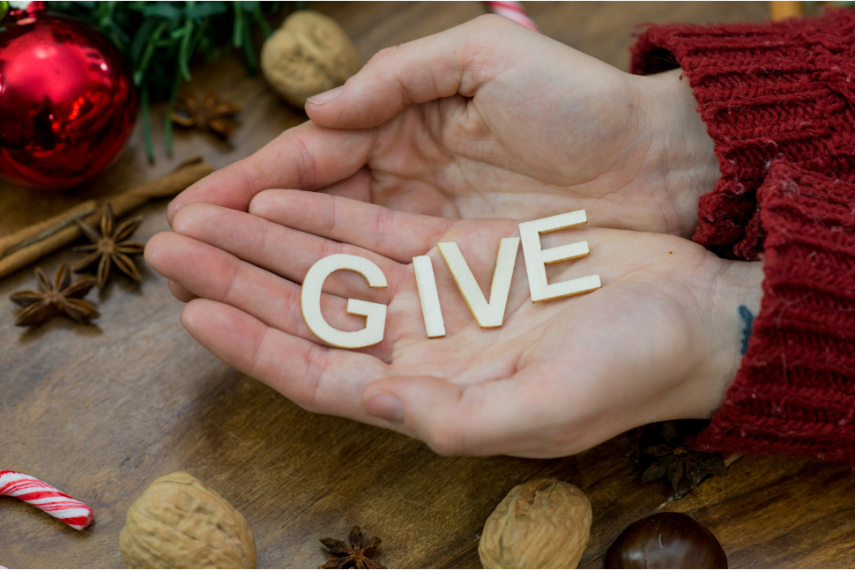Finding Holiday Joy While Supporting Your Loved One Through Mental Health Challenges

It is often challenging helping a loved one diagnosed with a mental illness. It takes time, patience, and a large amount of empathy and understanding. Sometimes, it can feel like it’s too much, and that we just don’t have the reserves to engage. During the holiday season, many people find themselves being pulled in several directions at once. Having your loved one in treatment may be the best answer at this time.
Holidays can be the best of times and can also be the cause of increased stress.
People who have mental illnesses may particularly feel uncomfortable and experience an increase in mood fluctuations and not know how to process.
Holidays can bring up triggers from past traumas, or be overwhelming and over-stimulating, leading to isolation. Family members may want to reach out, but due to their own increase in stress, may also want to try to avoid any problems that may arise.
Here are some helpful ways to approach the season when coping with your loved one’s mental illness during the holidays as well as your own well-being.
Energy Sensitivity Awareness
Some people thrive on the heightened energy of the holiday season, while others tend to avoid it. Public places, such as shopping malls, supermarkets, bars, and restaurants become over-crowded, parking lots are fuller, traffic is more congested, and people have a tendency to pay attention to others much less as they go hunting for presents. Some people, including those with mental illness, are more energetically sensitive than others and over-stimulation of the senses can lead to meltdowns and mental breakdowns.
Large family gatherings, which can often be loud—and at times a bit chaotic—may not be the most appropriate place for a person who is energetically sensitive and could potentially suffer a “systems overload.” If you have a family member who wants to be included in all the family functions, remind them to take breaks, take a walk, find a place for them to decompress if need be, and be able to keep an eye on them before there is an issue.
Otherwise, see if there can be a smaller and more intimate gathering to celebrate with them in a quieter place either at a restaurant or their place if they live on their own. Going to a place where your loved one feels comfortable is often a good choice. They can feel more in control of their environment, which can reduce triggers and allow for higher functioning with less mood swings. They may also feel respected, heard, and validated when asked about where they would like to go. If they decide on wanting to be around the family which may include large groups of people, be sure to have a room that they may be able to relax in if it becomes to overwhelming, or a person who would be willing to take them home if they happen to change their mind.
Remember that the calmer the atmosphere is usually the best for your family member.
Take the Pressure Off Gift Buying
If your family member is not employed, they may feel inadequate regarding getting presents for people. Be clear that you either don’t expect anything but are open to things such as something they can make, a letter, or something small. Often, they will want to get people they love a gift and may feel bad coming up empty-handed. Have realistic expectations, and don’t turn it down if they give you a small gift.
Begin Your Recovery Journey Today.
619-466-0547Treatment During the Holiday Blues
There are signs to look out for if a loved one is experiencing the “Holiday Blues.” These signs include:
- Mild to major depression and sadness
- Quick to anger
- Easily frustrated
- Fatigue
- Isolation
- Non-communicative
- Feelings of abandonment
Drug and alcohol use also often typically increase in the three-four months of the season. Having a loved one with mental illness enter a treatment program during the Holidays can be a great option for everyone involved. You can:
- Know your loved one is in a safe environment receiving appropriate care
- Get a needed break if you are the primary caregiver
- Worry less knowing that they are in treatment
- Know that the external pressures of the Holidays are reduced
- Feel comforted that they will be in a professional and supportive environment with staff who understand the complexities of mental illness.
>> Learn about our program at BrightQuest
Being of Service to Others
A choice to be with your loved one during the holidays may be helping them help others. If they are functioning appropriately to be in public, you can be together by serving at a soup kitchen, helping the elderly, volunteering at a shelter, food pantry, and many other places that are in need. This can give your loved one a sense of purpose, stay social, be with a family member, and be able to remove themselves if it becomes too much without feeling obligated to family.
Exercising Self-Care
Taking some time to take care of yourself will help everyone around you, including a loved one who has mental illness. They will be able to see that you are calm, relaxed, and can set an example for them, especially during times of heightened stress. This is often a very hard concept and application for people who care-take for others. However, in order to be in optimal shape for our loved ones who need us, we must take the time and prioritize our own health and well-being.
Self-care should be an activity that you can do to “reset” which reduces stress, anxiety, adrenaline and increases a sense of calmness. Most people have a difficult time finding a balance with taking care of themselves when they are used to care-taking for others. Think of it as helping others by helping yourself first. There’s a metaphor of self-care which can make sense to people: picture yourself on a plane sitting next to an infant. The plane loses altitude rapidly and the oxygen masks are released. The rule is—you MUST put your masks on before helping the child; for if you don’t, you both will be compromised. Think of self-care as this, so you can be the healthiest person for your loved one.
What can you do for yourself to exercise self-care? For good self-care practice, be sure that you can set aside 30 minutes to an hour out of EVERY DAY for something you like to do such as:
- Reading a book
- Taking a bath
- Doing a crossword
- Playing on a phone app
- Watching a favorite TV show
- Taking a walk
- Going to the gym
- Art projects
- Meditating
- Yoga
- Massage
Anything you can do by yourself that can help decompress will be of benefit to you and others in the long run. The key to self-care is to accept and receive, rather then giving or using energy that goes out to others or situations.
Furthermore, self-care doesn’t NOT mean multitasking to get the long “to-do” list completed. Try not to engage in conversation with others while taking time out for self, or doing multiple activities: such as watching a favorite show, cooking dinner, and cleaning the house at the same time.
Coping With the Holidays When Your Loved One is in Treatment
Having a loved one with a mental illness enrolled in a treatment center during the holidays can radically reduce anxiety levels for caretakers, family members, and the individual in need. Considering having your loved one in treatment during the holidays can produce the positive outcome everyone is looking for at the most commonly challenging time of year.
Facilities like BrightQuest schedule holiday-related events and dinners all throughout the season for both clients and their families, ensuring strong community support and celebration.
BrightQuest Treatment Centers is located in Nashville and San Diego. For more information about our levels of care, clinical staff, and program offerings at each location, please visit our location pages.
>> Learn more about BrightQuest Nashville
>> Learn more about BrightQuest San Diego






